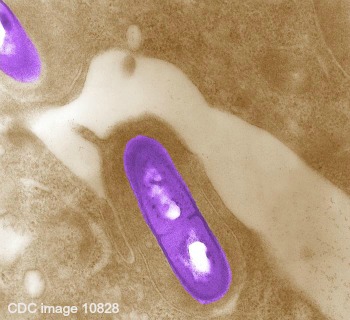When it comes to sheer survival skills, no other foodborne bacteria even comes close to Listeria monocytogenes. Freeze it, dry it, hit it with high concentrations of salt, alcohol, acid or bile and Listeria responds with a shrug. Refrigerate E. coli or Salmonella and you’ll slow down their growth. Put Listeria in the fridge and it will set up shop.

Over the years, its various clones have learned how to adapt to different environments. A recent study in Nature Communications outlines how, by invading more tissue, the hypervirulent clones can colonize in the intestines of mammals better than less potent clones can, but the hypovirulent ones can better adapt to food processing environments. Together they have all the bases covered.
And not only can Listeria adapt, it can hide.
Pregnant women are 10 times more likely than the general population to contract a Listeria infection. For pregnant women who are Hispanic, the risk of contracting listeriosis is 24 times higher. Among all pregnant women, Listeria infections can cause miscarriage, stillbirth, premature birth, and infection of newborns. Even if the expectant mother shows no signs of illness.
For years, it was thought that the reason pregnant women were at elevated risk was because their immune systems are suppressed during pregnancy. But a study by researchers at the University of California, Berkeley found that when Listeria is ingested by a pregnant woman, it makes its way to the placenta where it can hide from her immune system and multiply into a significant force before invading the rest of her body.
About 1,600 Americans contract listeriosis each year, according to the Centers for Disease Control and Prevention (CDC). More than 90 percent of cases require hospitalization. And for about 16 percent of case-patients, the infection proves fatal.
The people most at risk fall into three groups: pregnant women, seniors and those with weakened immune systems. Symptoms, which can take as long as 70 days after exposure to develop, include high fever, chills, headache, muscle aches, diarrhea, abdominal cramps and upset stomach. Complications of listeriosis include sepsis (blood infection), meningitis (spinal infection and inflammation), or encephalitis (inflammation of the brain).
See your doctor if you have been exposed to Listeria and develop these symptoms.
